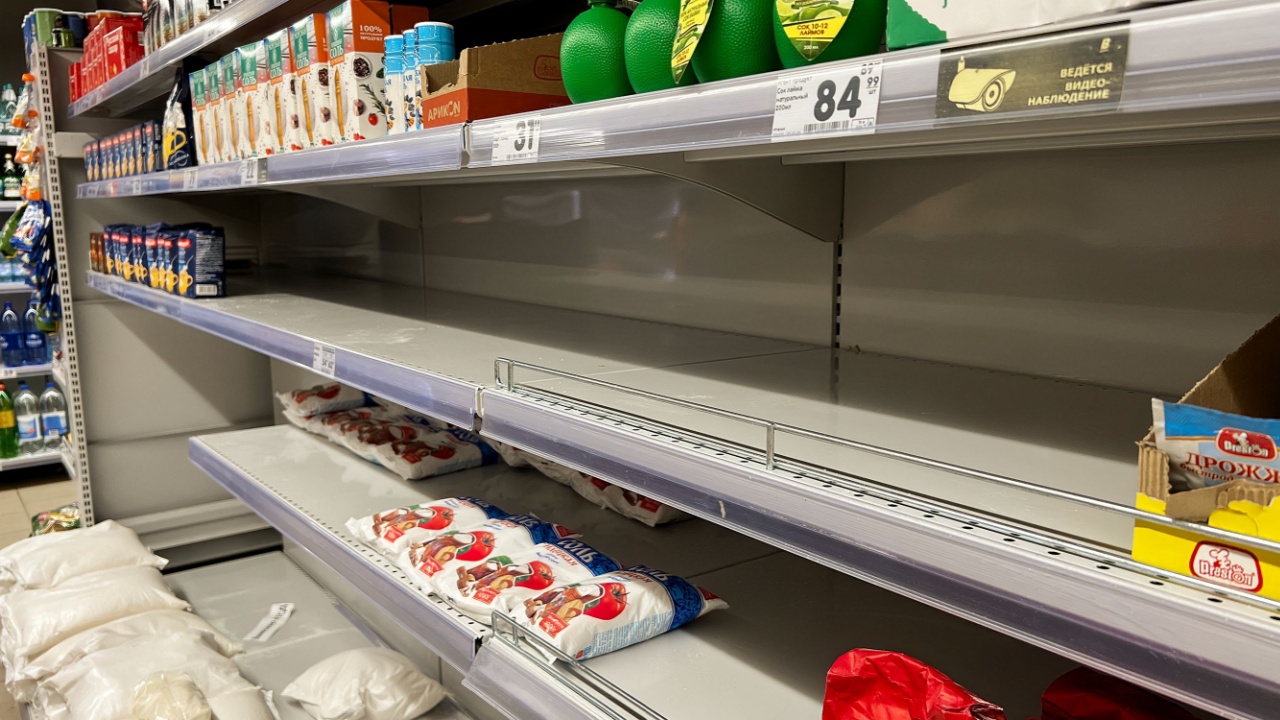World
Ukraine Strikes Back: Russia Faces Economic Turmoil Amid War

Ukraine has intensified its offensive against Russia’s economy as the ongoing conflict shows signs of taking a significant toll on Moscow’s financial stability. Over the past year, Ukrainian drone strikes have targeted Russian oil refineries, highlighting Kyiv’s strategic shift towards crippling Russia’s energy revenues.
In the wake of these developments, the situation in Russia has become increasingly dire. According to reports, about 38 percent of the country’s primary refining capacity has been affected, leading to fuel shortages across more than 20 regions. Long lines at gas stations are becoming common, while citizens in occupied Crimea have resorted to siphoning fuel from parked vehicles. Authorities have even begun preparing for gasoline imports, acknowledging that “the situation is critical.”
Despite years of insulation from the effects of the war, Russia’s economy is now facing serious challenges. In September, reports indicated that gasoline imports from Belarus surged fourfold, reaching 49,000 tons as Russian drone strikes on refineries exacerbated the crisis. The financial strain is further compounded by sanctions and the depletion of oil reserves, which, according to The Wall Street Journal, may become increasingly difficult to extract by 2030.
The economic fallout is not limited to energy. The Russian government has reported a budget deficit of $61.1 billion by July, exceeding targets set for the entire year. Analysts predict this could rise to approximately $70 billion in 2026. In response, the government has raised taxes on small businesses and increased the Value Added Tax (VAT) to 22 percent, while cutting social expenditures.
Former Ukrainian Defense Minister Andriy Zagorodnyuk has argued that the war has entered a protracted phase, making the prospect of a quick ceasefire unrealistic. He advocates for a strategy of “strategic neutralization,” aiming to paralyze Russia’s key capabilities. Ukrainian forces are reportedly focused on targeting airports, weapons depots, and energy infrastructure, which are vital for sustaining the Russian military.
As the conflict grinds on, both military and economic strategies are evolving. Ukraine is moving beyond the use of expendable drones, recently unveiling new missile systems such as the “bulged” R-360 Neptune and the Flamingo cruise missile. These advancements signal a deeper, layered strike capability aimed at Russian logistics and manufacturing hubs.
The impact of these strikes is evident. A Russian commentator acknowledged that the situation is deteriorating, with escalating fuel crises prompting officials to issue dire warnings. The Russian economy’s reliance on oil revenue is becoming increasingly precarious, as the Kremlin’s strategy of sustaining the war at all costs faces mounting fiscal pressures.
In the face of these challenges, prominent Russian economists like Vladimir Milov and Igor Lipsits have predicted worsening economic conditions. They maintain that Russia’s economy is in a “deep budget crisis” with no immediate resolution in sight. The ongoing war has led to significant drops in living standards for many Russians, while the government’s focus on military expenditure neglects consumer needs.
As the conflict continues, the fundamental question remains: will the economic pain be enough to compel Russia to negotiate? While Lipsits maintains that Russia can sustain its military efforts as long as oil exports remain viable, Milov warns that the current strategy is unsustainable and could lead to further economic collapse.
The solution to Russia’s economic woes is clear: an end to the war with Ukraine. Yet, given President Vladimir Putin’s deep association with this ongoing conflict, a retreat appears politically unfeasible. For now, the choice facing Russia seems stark: either the country faces economic ruin or Putin must find a way to secure a decisive victory.
-

 Science2 months ago
Science2 months agoInventor Achieves Breakthrough with 2 Billion FPS Laser Video
-

 Health2 months ago
Health2 months agoCommunity Unites for 7th Annual Into the Light Walk for Mental Health
-

 Top Stories2 months ago
Top Stories2 months agoCharlie Sheen’s New Romance: ‘Glowing’ with Younger Partner
-

 Entertainment2 months ago
Entertainment2 months agoDua Lipa Aces GCSE Spanish, Sparks Super Bowl Buzz with Fans
-

 Health2 months ago
Health2 months agoCurium Group, PeptiDream, and PDRadiopharma Launch Key Cancer Trial
-

 Top Stories2 months ago
Top Stories2 months agoFormer Mozilla CMO Launches AI-Driven Cannabis Cocktail Brand Fast
-

 Entertainment2 months ago
Entertainment2 months agoMother Fights to Reunite with Children After Kidnapping in New Drama
-

 World2 months ago
World2 months agoIsrael Reopens Rafah Crossing After Hostage Remains Returned
-

 Business2 months ago
Business2 months agoTyler Technologies Set to Reveal Q3 Earnings on October 22
-

 World2 months ago
World2 months agoR&B Icon D’Angelo Dies at 51, Leaving Lasting Legacy
-

 Health2 months ago
Health2 months agoNorth Carolina’s Biotech Boom: Billions in New Investments
-

 Health2 months ago
Health2 months agoYouTube Launches New Mental Health Tools for Teen Users









